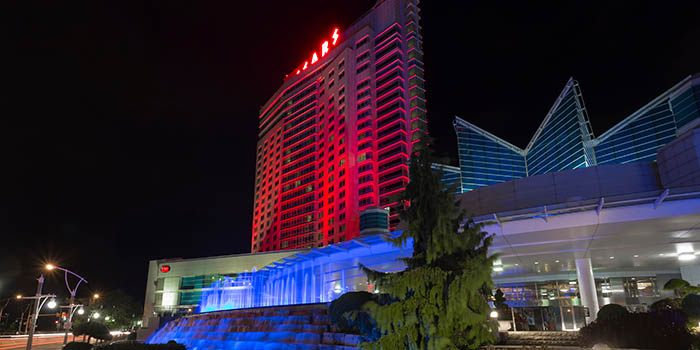Japanese MP Casino Bribery Scandal Casts Shadow on Gambling Projects

The past week brought new reasons to doubt the integrated resort (IR) projects in Japan, with former ruling party member Tsukasa Akimoto arrested for allegedly aiding a Chinese company gain an unfair advantage in the bidding process for an IR.
500.com Allegedly Bribed Tsukasa Akimoto
The future of Integrated Resorts (IR) in Japan has been dimmer since last week when Japanese MP and member of the ruling Liberal Democratic Party (LDP), Tsukasa Akimoto, was arrested. Mr. Akimoto has been allegedly paid off by 500.com a Chinese company looking to cash in on the upcoming IR projects across Japan, with the first one set to arrive in 2025 for the World Expo.
The news was quickly picked up by media, including GamblingNews last week. News about Mr. Akimoto’s alleged bribe circulated most mainstream media, including the Financial Times where contributor Leo Lewis suggested that Japanese Prime Minister Shinzo Abe – author of the IR projects and member of the LDP – may now face a more difficult time pushing the project.
In honesty, public sentiment for the IR projects has been fairly low, with locals still showing a negative attitude towards gambling. Yet, Mr. Abe is focused on international visitors and creating an alternative gambling hub in Asia different from China-controlled Macau.
Based on the allegations, Mr. Akimoto had received JPY3.7 million ($34,000) from 500.com to make the case for the company and allow 500.com to win a bid and build the first resort in the Hokkaido prefecture. At the beginning of December 2019, Hokkaido revealed the names of three bidding companies, with a fourth one remaining anonymous.
The question now is if that fourth company has been 500.com and if the executive team had intentionally decided to keep their company’s name under wraps. Based on documents held by 500.com, Mr. Akimoto has been allegedly making 500.com’s case since at least 2017.
He reportedly visited the Chinese headquarters of 500.com as well as Hokkaido on at least one occasion. As part of his push for casinos in Japan, Mr. Akimoto also traveled to Macau.
The Alleged Bribery and Mr. Akimoto’s Guilty
Mr. Akimoto, sources have revealed, received the alleged amount, JPY3.7 million in two tranches. First, he received JPY3 million in cash and was further paid off for travel expenses amounting to JPY 700,000.
Yet, Mr. Akimoto is not alone. He was apprehended along with three other individuals – reportedly 500.com employees – who also facilitated the exchange. While Mr. Akimoto acknowledged to know the arrested people, he denied wrongdoing.
However, the employees said that they had indeed offered Mr. Akimoto money in exchange for backing in the upcoming IR projects. According to sources, Mr. Akimoto knew why he had been invited to Hokkaido and why he went to 500.com’s headquarters.
The potential ramifications of these revelations are not quite known just yet. Anti-gambling campaigners could use this to try and delay or stop any integrated resorts arriving on Japanese soil. Conspiracy theorists argue that the move could have been orchestrated, as China doesn’t want to see a new gaming hub, other than Macau, operate in Asia.
China has exercised soft power over neighbors and regional gaming nations, such as the Philippines and Cambodia, prompting them to wind down their gaming activities. Previously, Caesars Entertainment was accused of attempting to bribe MPs by participating in their fund raises.
Japan legalized its gambling industry in 2016 under the condition that all forms of gambling activities would take place in specifically designated areas, i.e. the integrated resorts. Whether the latest slip-up puts a crimp on progress remains to be seen.
Mike made his mark on the industry at a young age as a consultant to companies that would grow to become regulators. Now he dedicates his weekdays to his new project a the lead editor of GamblingNews.com, aiming to educate the masses on the latest developments in the gambling circuit.



